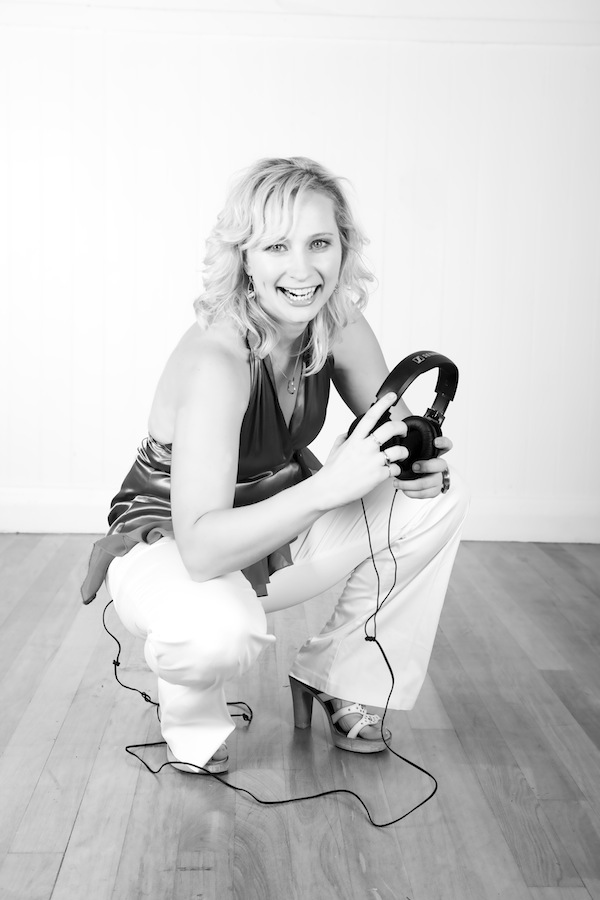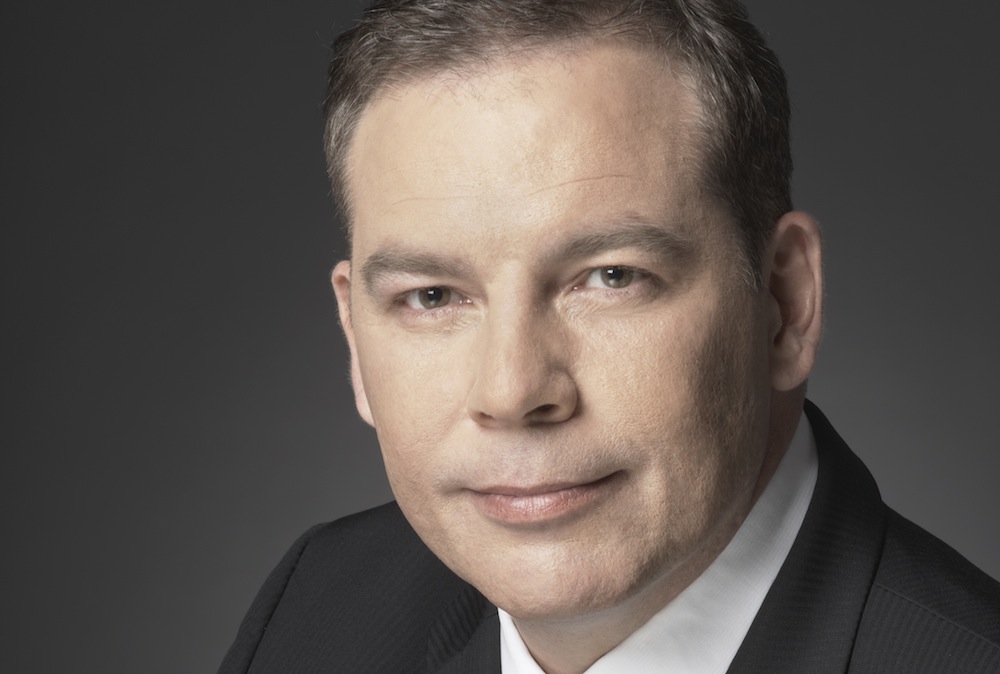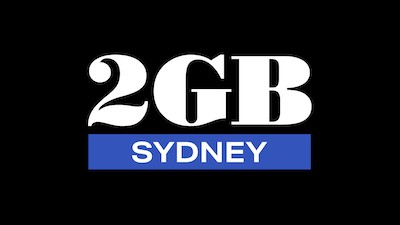The Brutal Truth – Part 2

The Art of Storytelling vs The Art of Joke Telling
Australia’s Top Talent Tell All About Comedy and Radio
Frank insights from the most stellar line-up of on-air talent ever assembled in one place
without mediation or the need to negotiate the release of hostages:
Tony Martin Wendy Harmer  Marty Sheargold
Marty Sheargold  Tom Gleeson
Tom Gleeson  Mick Molloy
Mick Molloy
Tom Ballard  Amanda Keller
Amanda Keller  Rosso
Rosso  Mikey Robins
Mikey Robins  Matt Tilley
Matt Tilley  Chrissie Swan
Chrissie Swan
Lehmo  Akmal Saleh
Akmal Saleh  Tim Smith
Tim Smith  Jo Stanley
Jo Stanley  James O'Loghlin
James O'Loghlin  Craig Annis
Craig Annis
Dave O’Neil  Tim Blackwell
Tim Blackwell  Robin Bailey
Robin Bailey  Simon Kennedy
Simon Kennedy  Stav Davidson
Stav Davidson
Dave Thornton  Julian Schiller
Julian Schiller  Lisa Fernandez
Lisa Fernandez  Jamie Row
Jamie Row  Ciel
Ciel  Joel Creasey
Joel Creasey
Tommy Little  Natalie Locke
Natalie Locke  Steve Philp
Steve Philp  Paul Hogan
Paul Hogan  Adam Richard
Adam Richard
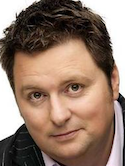
“Radio and stand up are different.
Radio lends itself to more storytelling and stand-up is more joke-orientated.
But the best stand-ups do a mix of both”
Dave O’Neil
Storytelling is a big part of performing on radio – having the ability to tell an engaging, entertaining, and well-crafted story in a way that triggers strong emotions (often laughter, although it could be tears, sympathy, disbelief, or outrage). Whereas stand-up comedy is much more about the well-honed skill of making people laugh until their stomach hurts.
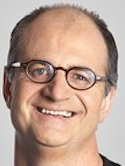 James O'Loghlin |
Stand-up has to be funnier than stuff you say on radio. In stand-up you need to make the audience laugh every 20 seconds or so. |
.jpg) Tom Ballard |
… when you're doing stand-up, you have to prove yourself every 10 to 20 seconds. When you do radio, you're trying to talk to people; when you do stand up, you're on and you're performing. |
|
|
There are startling differences between stand-up and working on air … (but) because I hadn't been doing comedy for that long (before moving to radio), I didn't find it too difficult to adjust to the difference. I was thrown into the deep end of a breakfast role and just expected to swim, and I found that I adapted relatively easily. |
|
|
UK comedian Adam Bloom once told me that there are people who write great jokes and then there are funny people. What radio needs is the latter. |
|
|
(The similarities between stand-up comedians and on-air talent are that) we both use microphones. Fact. Also story telling and having confidence in your creative ideas is something that helps in both endeavours. |
Both radio and stand-up comedy can involve storytelling, joke telling, or a combination of the two – although radio and stand-up each require different skills and approaches. Radio leans much more towards storytelling, and nowadays very few comedians are employed on radio purely as joke tellers, or for their quick-witted one-liners. What works on stage can be irritating and ‘try hard’ on-air (insert sfx: Boom tish! Boom tish! Boom tish!).
|
|
A wise-cracking, one liner persona won’t get you very far on radio. It’s tiresome for both you and the listeners. |
|
|
‘Joke teller’ comedians often don't work as well on radio, whereas storyteller comedians translate best for radio. Comedians who make observations about everyday life, television shows, news, and current affairs, will generally do better on radio. |
Many stand-up comedians start out as ‘joke tellers’, and can often make a long and successful career by sticking to that strength. Which is fine – so long as they’re not gagging for a great gig on radio. By contrast, storytelling is central to both the on-stage and the on-air performance of many successful and seasoned stand-up comedians, such as Tim “Rosso” Ross.
|
|
My comedy is very much based on storytelling, so it is well suited for radio, and it also is the mainstay of how I work live on stage. |
But even then, the approach to storytelling on-stage and storytelling on-air is different…
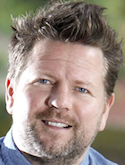 Rosso Rosso |
(My on-stage stand-up work) is about tangents, and milking a story for as long as possible. Radio, most of the time, is the complete opposite. |
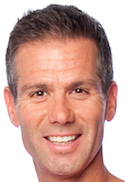 Matt Tilley Matt Tilley |
There is a fundamental difference in creating a long and hilarious narrative (on-stage) to just a few quips in the general parry and thrust of working (on-air) in a team. Lots of stand-ups work this into their routine with the audience, and I found they were the ones who seemed to get the furthest on radio. |
 Rosso Rosso |
One of the problems for comics when they come to radio is being precise. |
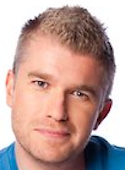 Paul Hogan |
(On radio there’s a different approach to) telling a story – all the while ditching extraneous words – making it completely relatable to your audience, and getting out on a high. |
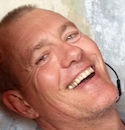 Brad March Brad March |
As a general rule, to be successful on-air, stand-up comedians need to learn to be concise – to be able to deliver content in focused bits, as opposed to long routines with detours and tangents. |
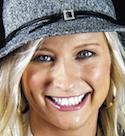 Sarah Levett Sarah Levett |
On-stage, in the right hands, the tangential approach can be riveting – and it’s often the best stand-up comedy of all. But on the radio, without a lot of ‘self-editing’, that same approach is rarely going to work because the medium is fundamentally different… |
|
Scott Muller |
Yes, and the medium is fundamentally different because the audience is fundamentally different – where they are, what they are doing, their expectations of you, and how actively engaged they are in what you’re doing. Radio very, very rarely has a captive audience that isn’t already distracted by doing, or thinking about, something else. When I was working on Martin-Molloy, Tony Martin would say “the enemy of comedy is distraction”… |
 Sarah Levett |
In other words, when you’re on the radio: ditch the detours. Riveting as they can be on-stage, on the radio they’re too hard for someone to follow while they’re doing something else – especially at breakfast time. As you’ve banged on about endlessly before, “on radio, people mentally tune-out when you change directions”. |
 Brad March Brad March |
True of personality radio in general, though, yes, it’s especially true of Breakfast radio. Think about how busy people are in morning. Imagine getting a family with 2 kids ready for school and work. People are so distracted in morning. |
|
Scott Muller |
Yet neither approach is right or wrong – on-stage is simply different to on-air. As always, you have to take different approaches for different media – in the words of Marshall McLuhan, “The medium is the message”. |
This essential truth is important to understand. Both stand-up comedy and radio are forms of media – they’re both about communication – yet each has unique and important differences.
.jpg) Tom Ballard Tom Ballard |
They're fundamentally different. They're different ways of entertaining people, with different expectations. That's not to say expectations can't be challenged or played with – heaven knows mainstream Australian radio could do with a shake-up – but as context and environments change, so must your comedy. |
And, not only is each of these mediums different from the other, there are also differences within each medium. Experienced stand-up comedians will recognise this from performing in different regions and venues: what works at an RSL club in a certain area simply won’t work in other venues for different audiences on different occasions: “The medium is the message”. Similarly, in radio, there are subtle differences in markets, formats, and dayparts…
 Brad March Brad March |
There's the great opportunity for comedians in Drive. After a day at work, people need a laugh and are sitting in traffic or public transport. They are less likely to be as distracted as they are during Breakfast; they’re a bit more ‘captive’ in that regard. Or, at least, they’re without as many distractions, so they’re likely to be a bit more engaged in what you’re saying. We recognised this ‘need for a laugh on the way home’ with Martin-Molloy (Australia’s first nationally successful, networked Drive show). It gave each station that took it a bookend effect – strong personality-driven Breakfast and Drive shows. It was a significant point-of-difference. |
Regardless of the these important but more subtle differences between radio audiences in breakfast and drive, when it comes to storytelling in stand-up comedy, a ‘radio-ised’ approach to storytelling probably won’t work for you. Unless the audience can feel it building up to something genuinely hilarious – and it is chocked full of big meaty laughs all the way through…
 James O'Loghlin |
Going from radio to stand-up – it’s no good being nice, or whimsical, or cheeky, or whatever, if you don’t make the audience laugh every 20 seconds. |
 Rosso Rosso |
When I stopped doing radio for a couple of years and did loads more stand-up, I had to retrain myself to milk those joke boobs again. |
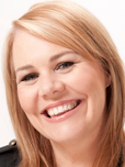 Natalie Locke Natalie Locke |
When I went back to do some stand-up, I found that I struggled with maintaining the audience engagement for a prolonged period. I had turned into a “three-minute tight-break” kind of girl. |
And that fundamental difference in the audience leads to a difference in how material is structured in a show…
 Matt Tilley |
Radio gives the freedom to start again every few minutes because people and topics move on, whereas you can’t just ‘reset’ a live audience – if you lose them you’re cactus. |
 Brad March Brad March |
With standup, if you don't get a laugh you keep going until you do, often as long as is necessary. However, in radio, if a talk-break is not working, generally it is best to cut your losses and go to an ad-break or a song. |
Or, if you have a good anchor, they’ll prove themselves invaluable at these moments by deftly segueing into a tease for what’s coming up next in Radio Today’s 'The Brutal Truth Part 3: Welcome to the Very Hungry Beast! (content-hungry radio)'.
The better anchors will bring that tease to vivid life by hinting at harrowing horror stories, chilling tales of long-forgotten comedians who had their short-lived careers chewed up, devoured, and spat out by The Great Hungry Beast – perhaps using relevant actuality like these quotes from Tony Martin and Amanda Keller…
“There’s quite a famous story of a stand-up who,
by Wednesday of his first week on breakfast radio,
had literally done his entire act!”
Tony Martin
“Radio arguably sucks up more material than any other creative medium.
Every single day, you are faced with a blank sheet
that somehow becomes a run down for a 3 hour live show.
Every day”
Amanda Keller
Then the same anchor will balance that ‘terrifying stick of fear™’ with an ‘aspirational carrot of hope™’! For example, tomorrow our expert panel will share their experiences and advice on how to not merely survive, but to thoroughly thrive, in this challenging and content-hungry environment – by using their on-stage and on-air work to feed each other!
“Topical comedy is what I do on a daily basis,
and through that my generic story telling has improved
as I push radio performance tricks and structures into any live work I do”
Marty Sheargold
Or they might use a deliberately uncredited quote in a half-arsed attempt to entice people to want to find out who said it …
“We were under huge pressure and mental strain to have fun …
… it was at times like being held at gunpoint and told
‘The person who is sadly no longer here
failed to sound “fun” to us.
So enjoy yourselves.
… Or else!’”
Temporarily Anon
That’s all coming up in 'The Brutal Truth' on Radio Today
|
|
Brad March is a former CEO of the Austereo Network and is Managing Director of Marchmedia. |   |
| Sarah Levett is a successful standup comedian, writer, MC, co-host of the New FM Breakfast Show. | ||
| Scott Muller is Director of MBOS Consulting Group, a media management and consulting firm. Click here to contact him. |  |
Who They Are (our stellar panel of experts):
Craig Annis – comedian and host of Star 104.5 breakfast show on Central Coast
 Robin Bailey – breakfast host of 97.3fm Brisbane
Robin Bailey – breakfast host of 97.3fm Brisbane
 Tom Ballard – comedian and host of triple j breakfast
Tom Ballard – comedian and host of triple j breakfast
 Tim Blackwell – host of Nova’s national drive show
Tim Blackwell – host of Nova’s national drive show
 Ciel – comedian and on-air personality, previously at Sea FM Central Coast
Ciel – comedian and on-air personality, previously at Sea FM Central Coast
 Joel Creasey – comedian and regularly appears on 92.9 Perth + other stations across Australia
Joel Creasey – comedian and regularly appears on 92.9 Perth + other stations across Australia
 Stav Davidson – comedian and host of B105 breakfast
Stav Davidson – comedian and host of B105 breakfast
 Lisa Fernandez – host of 92.9 breakfast in Perth
Lisa Fernandez – host of 92.9 breakfast in Perth
 Tom Gleeson – comedian and previous host of Mix 101.1 breakfast
Tom Gleeson – comedian and previous host of Mix 101.1 breakfast
 Wendy Harmer – comedian, ex-host of 2Day FM Morning Crew, now Editor in Chief of The Hoopla
Wendy Harmer – comedian, ex-host of 2Day FM Morning Crew, now Editor in Chief of The Hoopla
 Paul Hogan – comedian and host of 92.9 breakfast in Perth
Paul Hogan – comedian and host of 92.9 breakfast in Perth
 Amanda Keller – hosted Triple M Syd bfst with Andrew Denton, now on WSFM with Jonesy
Amanda Keller – hosted Triple M Syd bfst with Andrew Denton, now on WSFM with Jonesy
 Simon Kennedy – comedian and former host of weekend breakfast on Nova 96.9
Simon Kennedy – comedian and former host of weekend breakfast on Nova 96.9
 Lehmo – comedian, TV personality and host of breakfast on Gold FM in Melbourne
Lehmo – comedian, TV personality and host of breakfast on Gold FM in Melbourne
 Tommy Little – comedian and weekend breakfast host on Nova 100
Tommy Little – comedian and weekend breakfast host on Nova 100
 Natalie Locke – host of Nova 937 breakfast in Perth and former stand-up comedian
Natalie Locke – host of Nova 937 breakfast in Perth and former stand-up comedian
 Tony Martin – comedian, famous for Martin / Molloy, Get This, and the D-Generation. Currently a writer/director of ABC's Upper Middle Bogan
Tony Martin – comedian, famous for Martin / Molloy, Get This, and the D-Generation. Currently a writer/director of ABC's Upper Middle Bogan
 Mick Molloy – comedian, famous for Martin / Molloy, the D-Generation, and currently hosts breakfast on Triple M Melbourne
Mick Molloy – comedian, famous for Martin / Molloy, the D-Generation, and currently hosts breakfast on Triple M Melbourne
 James O’Loghlin – comedian, TV personality and ABC radio host
James O’Loghlin – comedian, TV personality and ABC radio host
 Dave O’Neil – comedian and founding member of the Nova 100 breakfast show
Dave O’Neil – comedian and founding member of the Nova 100 breakfast show
 Steve Philp – comedian and former host of weekend breakfast on Nova 96.9
Steve Philp – comedian and former host of weekend breakfast on Nova 96.9
 Adam Richard – comedian who has worked at triple j and for the Today network
Adam Richard – comedian who has worked at triple j and for the Today network
 Mikey Robins – comedian who has worked on breakfast at triple j and Triple M Sydney
Mikey Robins – comedian who has worked on breakfast at triple j and Triple M Sydney
 Tim 'Rosso' Ross – comedian and host of Mix drive in Sydney and Melbourne
Tim 'Rosso' Ross – comedian and host of Mix drive in Sydney and Melbourne
 Jamie Row – comedian and host of Mix 101.1 breakfast with Chrissie & Jane
Jamie Row – comedian and host of Mix 101.1 breakfast with Chrissie & Jane
 Akmal Saleh – comedian and former host of Nova national drive show
Akmal Saleh – comedian and former host of Nova national drive show
 Julian Schiller – comedy writer and host of Merrick & The Highway Patrol
Julian Schiller – comedy writer and host of Merrick & The Highway Patrol
 Marty Sheargold – comedian and host of Nova’s national drive show
Marty Sheargold – comedian and host of Nova’s national drive show
 Tim Smith – worked on The Richard Stubbs Breakfast Show, Timbo & Bedder’s, and on Mix 101.1
Tim Smith – worked on The Richard Stubbs Breakfast Show, Timbo & Bedder’s, and on Mix 101.1
 Jo Stanley – host of breakfast on Fox FM Melbourne
Jo Stanley – host of breakfast on Fox FM Melbourne
 Chrissie Swan – host of Mix 101.1 breakfast in Melbourne
Chrissie Swan – host of Mix 101.1 breakfast in Melbourne
 Dave Thornton – comedian, host of Mamamia Today and current weekend show with Sophie Monk
Dave Thornton – comedian, host of Mamamia Today and current weekend show with Sophie Monk
 Matt Tilley – host of breakfast on Fox FM Melbourne
Matt Tilley – host of breakfast on Fox FM Melbourne
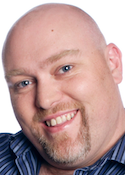
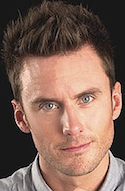
.jpg) Wendy Harmer
Wendy Harmer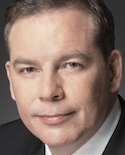
%2072px.jpg)
